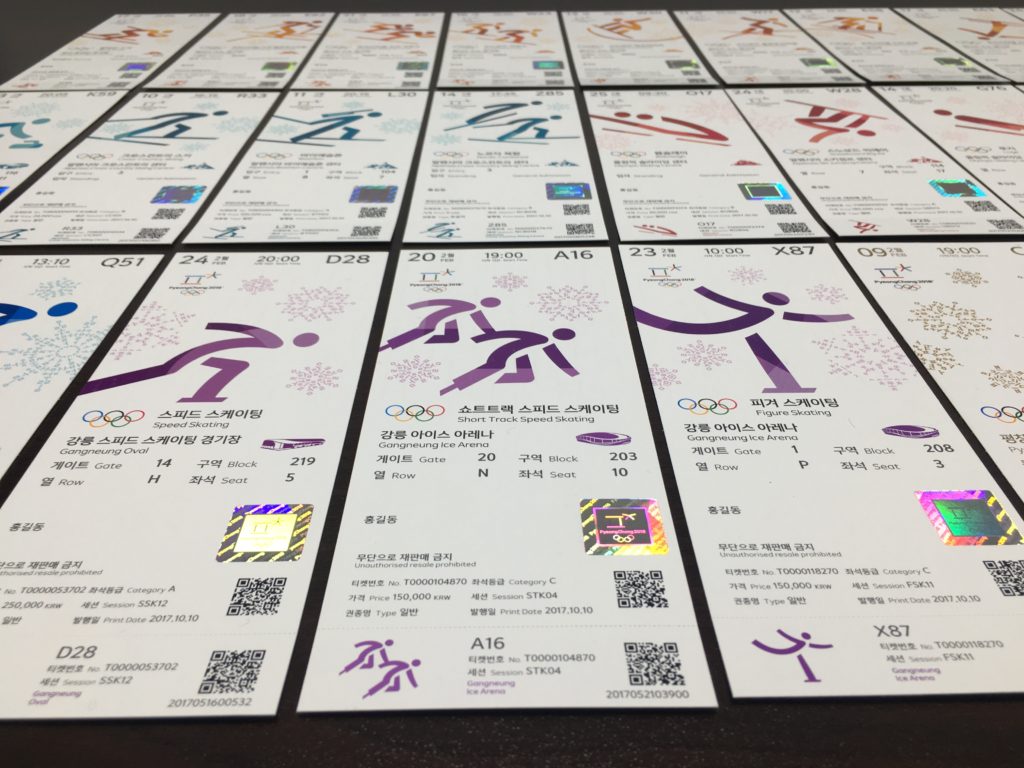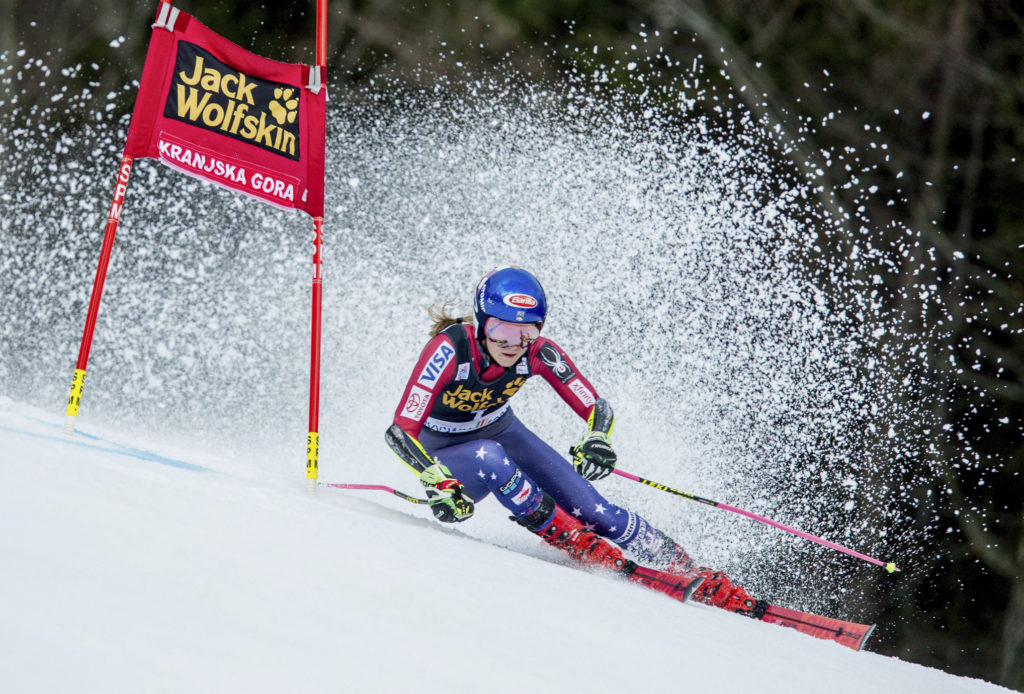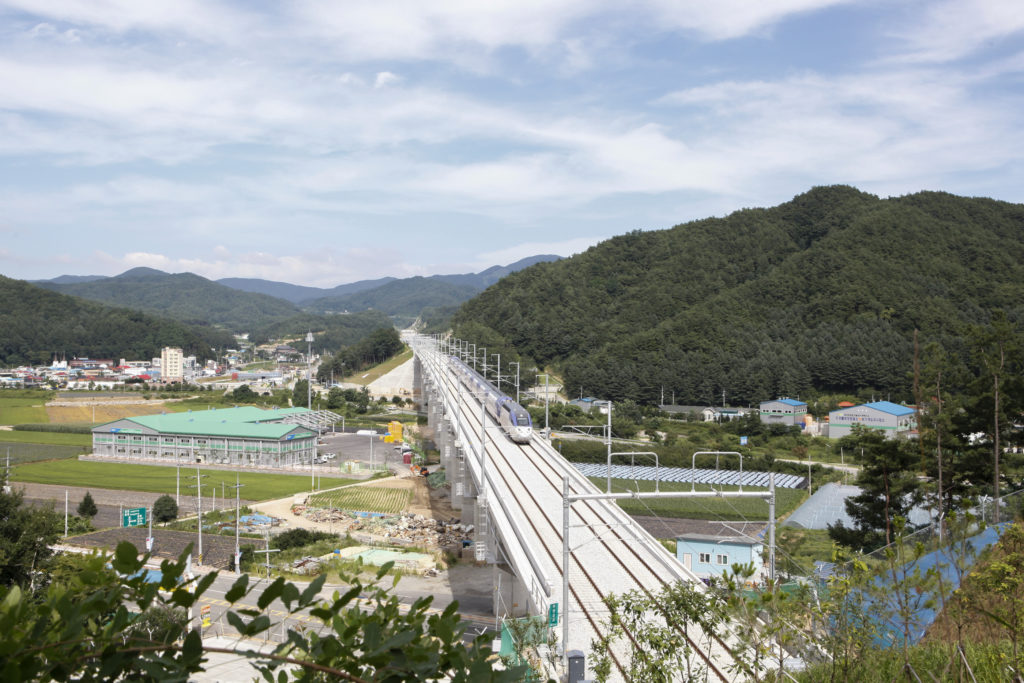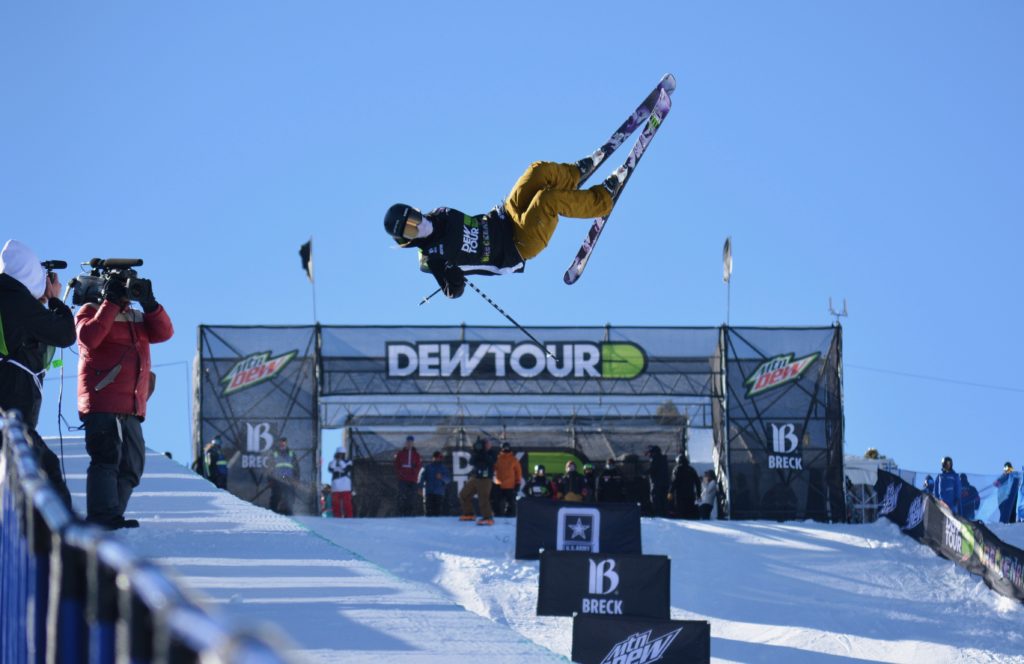New Look for the Games
Posted On: February 1, 2018 By :
The first Olympic and Paralympic Winter Games to be held in South Korea will certainly have a different feel than other recent Games. For the first time in 20 years, there will be no active NHL players competing. For the first time since 1952, there will not be an official team from Russia, thanks to sanctions from recent doping scandals. And that’s not to mention that the most high-profile international sports tournament in the world will be staged against a backdrop of high political tension with North Korea, a situation that the Trump administration at one point even hinted may prompt the United States team to stay home.
The Olympic Winter Games are scheduled for February 9–25 in Pyeongchang, a mountain region about 80 miles east of Seoul. How many fans will show up is still an open question. Organizers have reported sluggish ticket sales, with potential visitors perhaps scared off by the politics surrounding the country’s neighbor to the north, whose border sits a mere 40 or so miles from the site of the Games. As of late January, 69 percent of all tickets had been sold, including local and international sales, with the opening ceremony at 77 percent and the closing ceremony at just 55 percent. Sales for the Paralympics, which will be staged March 9–18, have been even slower.
While tensions have been high, there have been signs of an easing, with North Korea and South Korea meeting weeks before the Games and even agreeing to march in the Opening Ceremony under one flag. The nations will also field a joint women’s hockey team. The U.S. Olympic Committee, meanwhile, has expressed confidence that the event will be well staged and secure. “Each Games presents a unique set of circumstances,” USOC CEO Scott Blackmun said.
“You have to look at where you’re going and the kinds of risks and threats you’re going to see. The reports we’re getting for Pyeongchang are fairly positive. We feel really good about this one because the things we do have the ability to control seem to be progressing very nicely.”
Two Clusters
The Games will take place in a “coastal cluster” and a “mountain cluster.” All but two mountain events—freestyle skiing and snowboarding—will be held in a relatively compact area that will also house the temporary Olympic Stadium and an Olympic park. Indoor ice events such as hockey, figure skating, speedskating and curling will take place in facilities along the coast. “The preparation of the venues themselves is in great shape,” said Alan Ashley, chief of sport performance for the USOC, who has taken several trips to the area. “One thing that’s really fun about Pyeongchang is the quality of the snow is very good, and they have cold temperatures—really winter-like conditions.”

The cold weather, in fact, has been a cause for concern. Organizers saved money on the 35,000-seat Olympic stadium by not including a roof or any wind protection for spectators. An internal organizing committee communication obtained by Reuters showed that organizers have been planning ways to keep attendees at the opening and closing ceremonies warm, since temperatures of 10 degrees Fahrenheit or colder would not be a surprise. According to the report, organizers plan to keep attendees active by adding interactive elements to the ceremonies, and will have blankets on hand for the audience—including special, thicker blankets reserved for VIPs only.
Hopes for Tourism
Whatever the weather, organizers are hoping the Pyeongchang region will be the ultimate victor, with the Games sparking future tourism. “We want to make sure we use the Games smartly to bring in more tourism and host more international events and position ourselves as the winter sports hub not only for Korea but for Asia,” said Dongeun Kim, press operations officer for Pyeongchang 2018, noting that the 2022 Winter Games will also be on the continent, in Beijing.
December saw the opening of a new high-speed rail line, the KTX (Korea Train eXpress), which connects the Olympic areas with Seoul’s main transit hubs and Incheon International Airport. Organizers intend for the train to carry up to 21,000 passengers a day during the Games on a trip that will take about two hours from Seoul’s airport to the coastal venues in Pyeongchang. The train project itself will be considered a legacy.

“Legacy is very important for Korea, because we held the Summer Games in 1988 in Seoul, and if you see those venues and the legacy of the venues, they are still continuing that strong foundation,” said Soyeon Kim, press operations manager for Pyeongchang 2018. “There’s great activity there.”
Organizers were hoping that the torch relay through the country would help boost domestic ticket sales as well. (The torch relay included a 150-meter run by HUBO, a humanoid robot whose participation was intended to highlight the country’s advanced technology.) And seats are expected to be mostly filled regardless of how the final ticket tally comes in.
“We have a full-stadium strategy,” said Dongeun Kim. “The most important part is that we will sell 90 percent of the tickets available. In case there are no-shows, then we have a contingency plan to make sure we fill the stadium to create an exciting environment for the athletes.”
Those Missing
One glaring difference between these Winter Games and recent ones will be the absence of NHL players. After years of threatening to back out of the event, the league finally did so this year, saying that the two-week suspension of the NHL schedule to accommodate the Games no longer made sense for team owners.
“We’re disappointed that we’re not going to have the best players from the NHL in the Games,” Blackmun said. “But at the end of the day, from our perspective, one of the most exciting moments in history was the men’s ice hockey team in 1980”—which featured amateurs—“so we’re not giving up hope on the possibility there’s another incredible, exciting moment.”
In the NHL’s absence, the U.S. team will be made up of some of the top college players, including Troy Terry, a 20-year-old who led the University of Denver to a national championship last season. “The movie ‘Miracle,’ it’s a little cheesy, but it’s so big to you growing up and it’s such a great movie,” he said. “As a young American hockey player, to know it’s back that way and to have a chance to represent your country on the biggest stage is pretty cool.”
The absence of the men’s professional players may also allow greater attention to the U.S. women’s team, the reigning world champions who appear to be on another gold-medal collision course with Canada. The two teams have played four of the five gold-medal matches at the Olympics since women’s hockey was added to the program in 1998.
“We’ll miss the NHL, but I think we have one of the worlds’ best women’s hockey teams and we’ll be out to conquer that rivalry,” said Lisa Baird, the USOC’s chief marketing officer. Meanwhile, other sports will showcase emerging stars, including Mikaela Shiffrin, the slalom specialist who won gold in Sochi at age 18, becoming the youngest person to win a gold medal in alpine skiing. Other potential breakout stars include Chloe Kim, a U.S. snowboarder of Korean heritage who is a favorite in her events. “I think with me being able to go to my first Olympics, Korea will be a really crazy experience,” Kim said. “I have a lot of family there, and they’ve never seen me compete before. I think it will be a cool and really unique experience.”
Successful Trials
Kim qualified for the Olympics with a victory at the Winter Dew Tour in Breckenridge, Colorado, in December, one of several winter events that served as qualifiers for U.S. athletes. The tour has been in the Colorado mountain town for 10 years, but the presence of the Olympic qualifier played a role in boosting attendance, said Adam Cozens, Dew Tour vice-president and general manager. “It definitely increased the media interest, which in turn increased overall interest,” he said.

Elsewhere in the United States, cities that hosted Olympic trials had the opportunity to bring in elite athletes and experience the excitement. Baxter Arena on the University of Nebraska–Omaha campus hosted the curling trials. The sport does not currently have a large presence in Nebraska, said USA Curling CEO Rick Patzke, but the organization came away impressed with the venue and the city. Overall, the trials attracted 25,000 people. “That was very good for us,” Patzke said. “It’s a fantastic venue with a very professional staff and the Omaha Sports Commission—I can’t say enough good things about them.”
Patzke said he was hopeful the Olympic trials will help spark interest in the sport around Omaha, much as it did in the suburban Denver community of Broomfield, Colorado, which hosted the trials in 2009 and has since seen curling clubs find dedicated ice for the sport.
John Shuster, who will captain the U.S. men’s team, said the sport has continued to gain momentum with each appearance at the Olympic Games. “Before 2010, it used to be an every-four-year thing, but I think that from 2010 to 2014 and to now, we’re seeing growth in places where curling didn’t exist,” said Shuster, whose team qualified for Pyeongchang during the trials in Omaha. “I think we’re actually seeing where there are more arena clubs forming, and those arena clubs are getting people passionate enough to try to get dedicated ice. It’s a pretty exciting time for curling in the United States.”
In addition to hosting trials, U.S. communities were also included in the TEAM USA Winterfest presented by Hershey’s. The 13-stop festival included a Hershey’s S’moresmobile, TEAM USA social media truck, a curling challenge and a virtual reality experience. Stops on the tour included the curling trials in Omaha and the U.S. Figure Skating Championships in San Jose, California, but also were scheduled for destinations such as Walmart’s flagship store in Bentonville, Arkansas, and the St. Paul Winter Carnival the day before Super Bowl LII in Minneapolis. On February 19, the tour will visit a U.S. military installation in Seoul for a military appreciation celebration.
On the Air
As for the event’s profile in the United States, NBC has significant plans, including broadcasting events live across all time zones in prime time for the first time. The network will air more than 2,400 hours of coverage across all its channels and platforms, including 176 hours on NBC, a record for the Winter Games. And the evening shows will have a new look as well, with Bob Costas having stepped down from the hosting role he has played at every Olympics since 1992. In his place will be Mike Tirico, a veteran from ABC and ESPN who in 2016 joined NBC in part for the chance to broadcast from the Games.
“The Olympic Games tend to bring the country together,” Tirico said. “They tend to enjoy watching what’s going on and rooting for the same athletes, instead of your alma mater or hometown team. As we have a more divisive country, it may be a great opportunity for the country to come together behind one thing. Who knows what our climate will be in February and who knows what the reality will be at that point. But I think that could be a big part of what the Olympics are in 2018.”
Posted in: Feature Story, Olympic Sports, Paralympic Sports